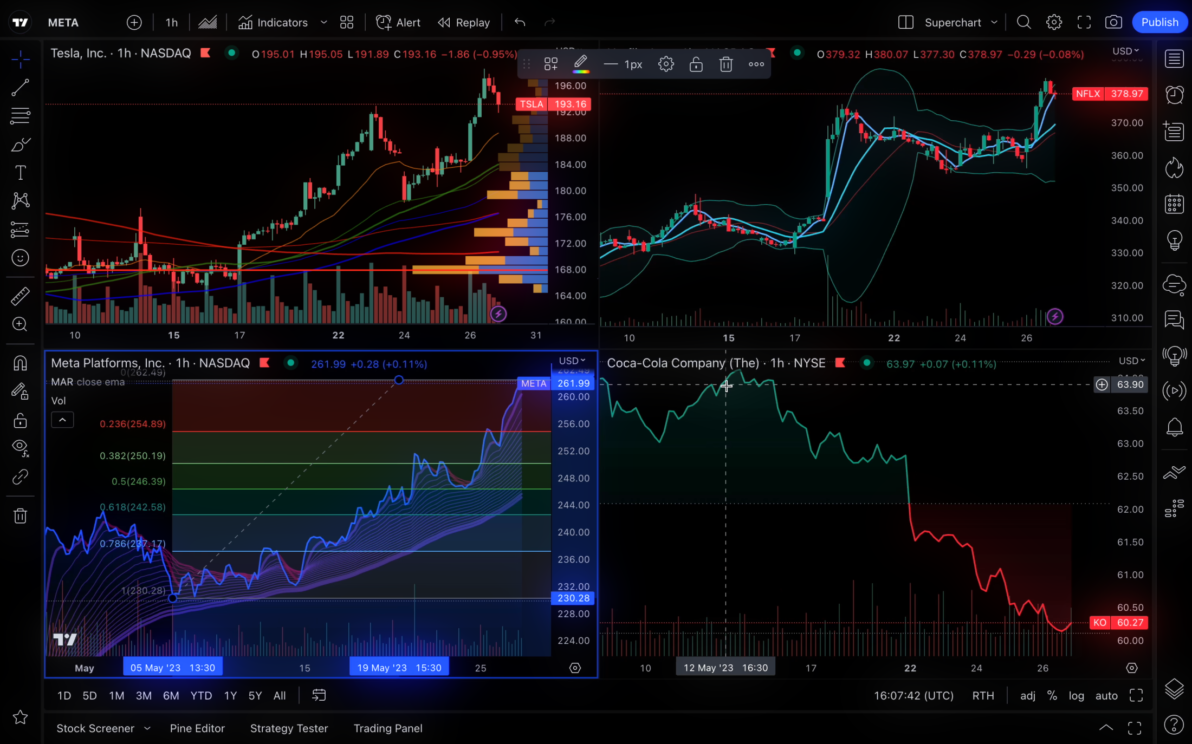¿Porqué es importante la regulación y que te dice del broker?

¿Por qué es importante la regulación y qué dice sobre el broker?
Introducción: La base de confianza en la selección de un broker
Elegir un broker es una decisión fundamental para cualquier persona que ingrese a los mercados financieros. Ya sea operando acciones, forex u otros instrumentos financieros, los inversionistas necesitan garantías de que sus fondos están protegidos y sus operaciones se ejecutan de manera justa. La regulación desempeña un papel clave en este proceso, proporcionando supervisión para fomentar la transparencia y la confianza.
Los brokers regulados deben cumplir con estándares que protegen a los inversionistas y aseguran el cumplimiento de los marcos legales. Sin embargo, no todas las entidades regulatorias imponen el mismo nivel de control, y comprender cómo está regulado un broker puede proporcionar información valiosa sobre su fiabilidad y estándares operativos. Este artículo explora qué implica la regulación y cómo refleja el funcionamiento de un broker, ayudando a los inversionistas a tomar decisiones informadas.
¿Qué significa la regulación en el mundo del trading?
La regulación en el trading se refiere a la supervisión de autoridades financieras para mantener la estabilidad del mercado y proteger los intereses de los inversionistas. Los organismos reguladores imponen estándares que los brokers deben seguir, incluyendo requisitos de capital, informes financieros y mecanismos de protección para los clientes.
El propósito de estas regulaciones es equilibrar la innovación en los mercados financieros con la seguridad de los participantes. Un broker bien regulado opera bajo directrices claras que ayudan a mitigar riesgos como el fraude, prácticas de trading desleales y problemas de insolvencia.
La regulación aplica a una amplia variedad de brokers, incluidos aquellos que trabajan con plataformas como Plus500, eToro, Avatrade, XTB, XM, Roboforex y Admiral. Aunque estas empresas pueden operar bajo múltiples jurisdicciones regulatorias, los estándares que siguen varían según sus autoridades de licencia. Comprender estas diferencias es clave para evaluar la credibilidad de un broker.
Requisitos regulatorios: una mirada detallada
Al elegir con quién invertir su dinero, es esencial asegurarse de que el broker esté adecuadamente regulado y sea una empresa confiable. Los organismos reguladores financieros supervisan a los brokers y les exigen cumplir con requisitos específicos para operar en el mercado. Estos requisitos están diseñados para controlar el funcionamiento del sistema financiero y proteger los recursos de los inversionistas minoristas. Estos requisitos varían según la entidad regulatoria, pero generalmente incluyen:
- Segregación de cuentas: Significa que el capital o fondos de los clientes deben depositarse en una cuenta diferente a la del broker y no se consideran dinero del broker. Esto implica que los fondos de los clientes no se ven afectados por la situación financiera del broker y que, en caso de quiebra u otros problemas financieros, los fondos están protegidos.
- Requisitos mínimos de capital y liquidez: Los brokers deben cumplir con montos mínimos específicos de capital y liquidez para cubrir sus operaciones financieras y, generalmente, utilizan bancos u otras grandes instituciones financieras como respaldo.
- Protección contra saldo negativo (no en todos los casos): Algunos organismos reguladores requieren que los brokers ofrezcan protección contra saldo negativo (PSN), lo que significa que el inversionista no puede perder más dinero del que ha invertido (consulte nuestra publicación sobre protección contra saldo negativo).
Existen varios organismos reguladores en todo el mundo, pero los más comunes en el mundo del trading son:
- Autoridad de Conducta Financiera del Reino Unido (FCA)
- Comisión Australiana de Valores e Inversiones (ASIC)
- Autoridad de Mercados Financieros de Nueva Zelanda (FMA)
- Comisión de Bolsa y Valores de Chipre (CySEC)
- Comisión Nacional del Mercado de Valores de España (CNMV)
En Europa, la mayoría de los organismos reguladores siguen las directrices de la Autoridad Europea de Valores y Mercados (ESMA). ESMA es una autoridad supervisora europea cuyo objetivo es mejorar el funcionamiento de los mercados europeos, fortalecer la protección de los inversionistas y mejorar la cooperación entre los organismos de control.
La mayoría de los brokers están regulados por varios organismos y pueden usar una licencia específica para operar en un determinado territorio. Cabe destacar que las entidades reguladoras de paraísos fiscales como Seychelles y Belice no exigen los mismos requisitos estrictos que otras regulaciones (por ejemplo, no requieren protección contra saldo negativo). Por lo tanto, es recomendable ser cauteloso con los brokers que solo están regulados por estas agencias o que utilizan dichas regulaciones para operar en su país.
Por ejemplo, Plus500, uno de los brokers más grandes y confiables, está regulado por todas las siguientes entidades y opera con una de estas licencias dependiendo del país:
- Plus500SEY Ltd está autorizado y regulado por la Autoridad de Servicios Financieros de Seychelles (Licencia No. SD039)
- Plus500UK Ltd está autorizado y regulado por la Autoridad de Conducta Financiera (FRN 509909).
- Plus500CY Ltd está autorizado y regulado por la Comisión de Bolsa y Valores de Chipre (Licencia No. 250/14).
- Plus500AU Pty Ltd tiene la licencia AFSL #417727 emitida por ASIC, FSP No. 486026 emitido por la FMA en Nueva Zelanda y Proveedor de Servicios Financieros Autorizado #47546 emitido por la FSCA en Sudáfrica.
- Plus500SG Pte Ltd (UEN 201422211Z) posee una licencia de servicios de mercados de capital otorgada por la Autoridad Monetaria de Singapur para operar con productos de mercados de capital (Licencia No. CMS100648-1).
*No aplica a los clientes de la Unión Europea.
CFD service, your capital is at risk
¿Qué revela la regulación sobre un broker?
La regulación refleja los estándares operativos y la transparencia de un broker. Un broker regulado por una autoridad estricta, como la FCA o ASIC, debe cumplir con auditorías periódicas, controles de cumplimiento y requisitos financieros rigurosos.
Por otro lado, los brokers registrados en jurisdicciones con regulaciones más laxas pueden tener menos obligaciones en cuanto a reservas de capital y protección del cliente. Si bien esto no implica automáticamente que sean poco confiables, los inversionistas deben evaluar estos brokers con mayor precaución.
Conclusión: La regulación como punto de partida
La regulación es uno de los puntos más importantes que debe revisar al elegir su broker y decidir con quién depositar su dinero. En general, la regulación indica que una entidad supervisora controla al broker y que, para operar, el broker tuvo que cumplir con ciertas obligaciones, como liquidez mínima, capital mínimo y segregación de cuentas, lo que significa que deben mantener los fondos de los clientes en una cuenta separada.
Elegir un broker es una decisión significativa, y la regulación es un factor clave para evaluar su credibilidad. Si bien no elimina todos los riesgos, comprender los marcos regulatorios proporciona información esencial para que los inversionistas tomen decisiones informadas. BrokerSuperMarket ayuda a los usuarios a comparar brokers, ofreciendo información sobre supervisión regulatoria y cumplimiento para respaldar sus decisiones de inversión.
Aviso legal: Este artículo tiene fines educativos únicamente y no constituye asesoría financiera. BrokerSuperMarket no ofrece recomendaciones de inversión ni garantiza resultados financieros. Los inversionistas deben realizar su propia investigación o buscar orientación profesional antes de tomar decisiones financieras.
February 14, 2025 05:47:00am
TradingView es una plataforma de gráficos financieros muy popular que atiende a ...
September 07, 2024 18:23:01pm
La industria energética sigue siendo crucial para la economía global, con sector...







 en
en es
es